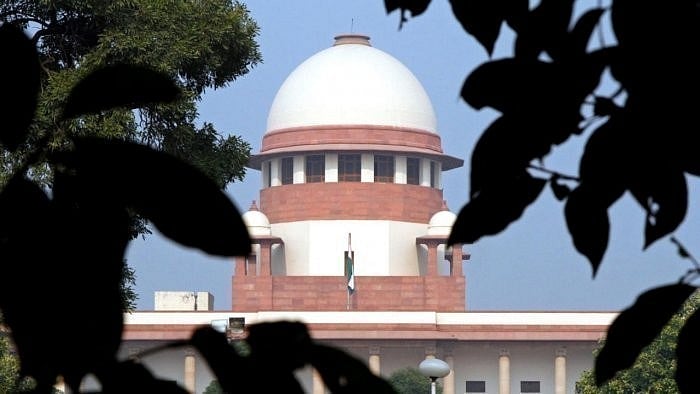
The Supreme Court of India.
Credit: PTI File Photo
New Delhi: The Tamil Nadu government has filed a plea in the Supreme Court challenging the validity of the Madras High Court's May 21, 2025 order which stayed the operation of nine 2020 enactments related to appointment of Vice-Chancellors in state universities.
Notably, those enactments were declared as passed by the apex court by using its extraordinary power under Article 142 of the Constitution after declaring the Governor's decision to send those bills for consideration of the President as illegal.
On May 21, on a writ petition filed by K Venkatachalapathy alias Kutty, an advocate from Tirunelveli said, the high court granted stay on the operation of the amendments, holding that UGC Regulations 2018 would prevail over the State legislation by virtue of the doctrine of repugnancy.
The plea before the HC challenged legislations passed by the State of Tamil Nadu, inter-alia pertaining to the manner of appointment of Vice-Chancellor to State Universities as being in violation of the UGC Regulations 2018.
In a special leave petition settled by senior advocate P Wilson, the DMK government, citing 2014 judgment, said courts should be slow in passing interim orders in matters challenging constitutionality of provisions and against the strong presumption of constitutionality.
In the present case, the high court passed interim order directing stay of operation of provisions which take away the power of appointment of Vice-Chancellor from the hands of the Chancellor, i e, Governor and vest the same in the government. The order has the effect of granting final relief at interim stage, it said.
The state government also said the petition was filed during vacations, without pleading any urgency in the matter. The vacation division bench of the high court entertained the plea from a lawyer belonging to a political party, in violation of 2025 notification issued on April 29, 2025 of the high court, which directed only “very urgent matters” to be listed before the vacation court, it contended.
"The division bench of the high court did not give sufficient opportunity to the petitioner - State to file a counter affidavit or respond to the writ petition or even argue before staying nine statutes enacted by the State Legislature which received deemed assent from this court in a landmark judgement titled State of Tamil Nadu Vs Governor of Tamil Nadu," it said.
The state government alleged the high court showed "undue haste" to complete the hearing of the case on the interim applications and has given "extraneous reasons for its findings".
